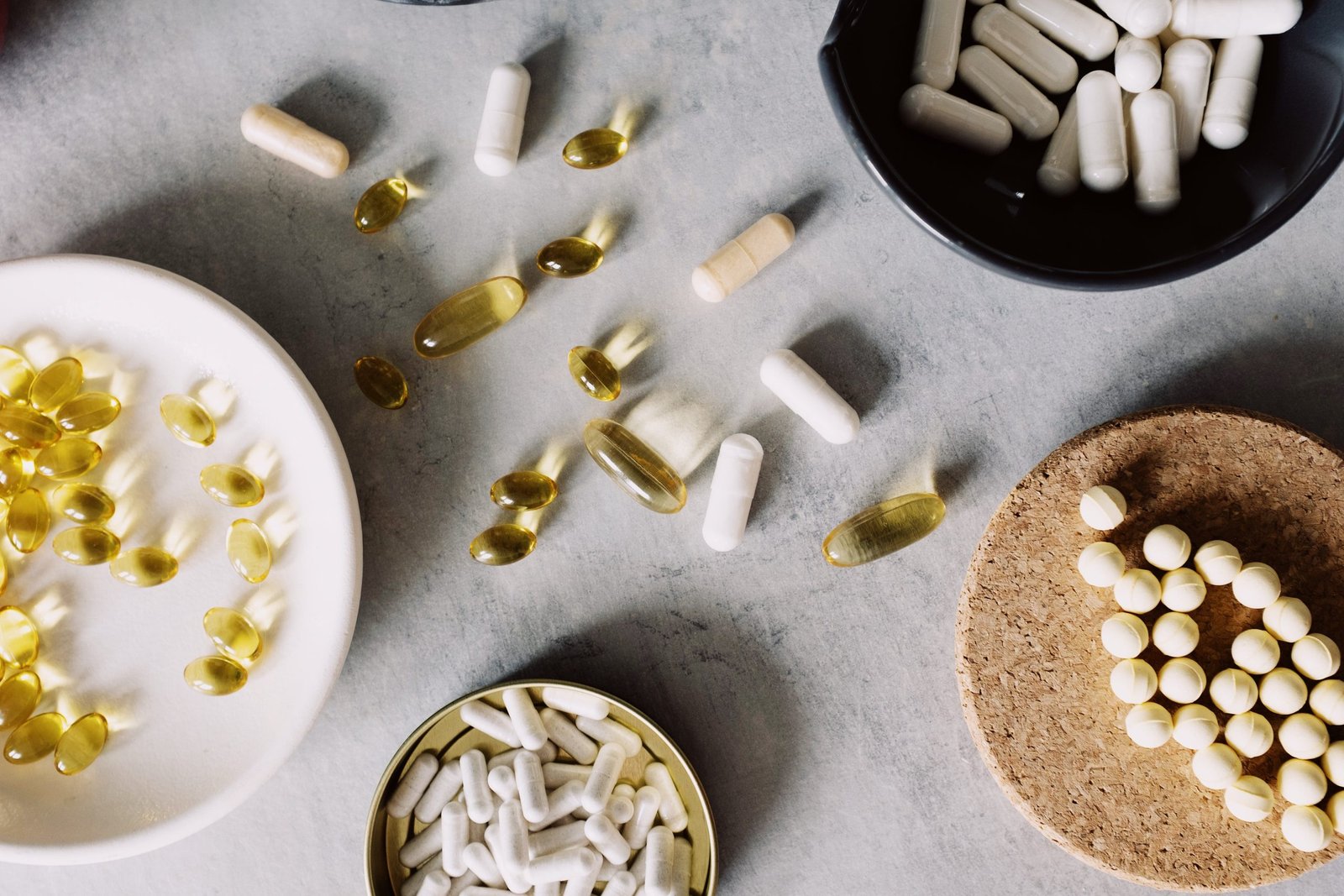Both the nutrition world and the beauty industry are incredibly challenging to navigate – there’s always a new miracle product being launched that promises to give you the clear skin of your dreams. As well, the ‘clean girl aesthetic’ and ‘wellness girl trends’ are putting pressure on us to have shelves full of skincare products, superfood powders and supplements.
While the aesthetic might look good, do you need all these products? Do you have to take supplements if you have acne? Are they worth it? And finally, do they actually clear your skin? These might be questions you ask yourself when seeing the constant Instagram Ads and TikTok trends. As a qualified nutritionist, you’ll probably think I’ll say yes – but it’s more complex than that (it’s more of a ‘it depends’ answer).
Working out whether a supplement will clear your acne depends on a few things, so let’s get into it.
How to find high-quality supplements to clear your acne
Quality isn’t just about fancy packaging and the marketing claims on the label; it’s about the purity and potency of the ingredients. There are a few areas of supplement formulation that reflect the quality of the product. This includes:
Dosage of the ingredient.
To get results from your supplements, they must be at the correct dosage. They won’t do anything if they’re too low, and if it’s too high, it might cause adverse side effects. In some cases of deficiencies – we need a therapeutic dose that you will only achieve through practitioner-grade supplements, most high-street brands won’t offer these dosages.
Forms of nutrients.
Just because a nutrient is in a supplement doesn’t mean it will work. The form of the nutrient in the supplement is vital. For example, folic acid can be difficult for some people to absorb and utilise, so these individuals will do better on a methylated form of folate instead.
Another example is magnesium. There are so many forms of magnesium that all do different things. Magnesium can help with muscle cramps, anxiety, period pain and constipation – but different forms of magnesium do different things. I prefer magnesium glycinate for anxiety and magnesium citrate for constipation. If we get the wrong form, you won’t get the results.
Formulation of the product.
Supplements come in loads of different formulations. You can purchase liquids, powders, capsules, gummies and tablets – and if we don’t know anything about supplements, we’ll think any formulation is good. But that’s not true. Liquids and powders can be better for people who need rapid absorption (or have digestive disorders). Capsules can be easier to digest and break down than tablets, but tablets can offer ‘slow-release’, which can be beneficial too. I’m not a fan of gummies; we’ll get onto why in a second!
Bioavailability of supplements.
Ok, this is more of a technical term here, but all it means is how well the body absorbs and uses the nutrients in the supplement. The folic acid example above relates to bioavailability. Another typical example is turmeric. Turmeric itself isn’t well absorbed – it needs something to increase its absorption so that you receive the anti-inflammatory benefits it claims. Also, it’s actually curcumin (the active ingredient within turmeric) that we want to help with inflammation. We can increase the bioavailability of curcumin by adding substances alongside it (like piperine – the active ingredient in black pepper) or altering the composition (adding fat/oil molecules).
Excipients (and non-active ingredients).
Excipients are ‘in-active’ ingredients added to supplements to help keep the active ingredients and product stable and effective while aiding the processing of the product. There are a lot of different excipients. Some essential ones include preservatives and non-caking agents. Other excipients that aren’t always necessary include: colourings, flavouring and bulking agents.
Low-quality supplements (this doesn’t reflect the price; a supplement can still be expensive but low quality) can be high in unnecessary ingredients, meaning that there are very few ‘active’ ingredients to give you the desired results. Gummies and tablets tend to have higher amounts of excipients. Gummies have more excipients because vitamins don’t taste good, so they have to hide the taste with sweeteners, sugar and flavourings. Tablets tend to have higher excipients for reasons such as being hard to swallow – there’s usually a coating on the tablet to make this process easier.
Ok, now we’ve covered the basics; let’s talk about supplements for acne and if they work…
Do supplements help clear acne?
I’m a massive believer in personalised nutrition, and when it comes to supplements – they need to be personalised, not just general ‘acne-fighting’ or ‘skin support’. To pick the right supplements for your skin, you need to target the root cause of your acne – not just ‘acne’. One of my favourite ways to find the root cause of skin issues is through doing comprehensive testing, which you can learn about here.
My advice is to always have a consultation first with a nutritionist to get the correct supplements (and in the suitable forms & dosage!). In the meantime, I’ve listed some supplements that can help with common imbalances in acne.
Supplements that help with acne
Omega-3
Omega-3 targets so many areas that will help your skin. These essential fatty acids help to reduce inflammation, support hormonal balance, regulate oil production and skin barrier function. Quality and quantity is essential when it comes to seeing the benefits of omega-3. To help reduce inflammation, we need to be using EPA & DHA and at the correct dosages. Also, fish oil can go rancid quite quickly if not processed correctly and then stored correctly.
Digestive enzymes
Digestive issues are prevalent in skin conditions. While digestive enzymes are commonly recommended, we must first determine why your body is struggling to digest and absorb your nutrients in the first place. I like to use digestive enzymes alongside gut-repairing nutrients to help support overall digestive function. But, digestive enzymes can help with the breakdown and absorption of food.
Probiotics
Probiotics have been found to help support the immune system, reduce inflammation, repair the gut lining, balance hormones and help improve the skin. Again, a very common suggestion when it comes to skin conditions, but working out what probiotic is best for you depends on a few factors. Comprehensive stool (gut) testing can give a better insight into which probiotic will be best.
Berberine
Healthy skin relies on healthy, balanced blood glucose levels – which berberine has been found to regulate. In addition, berberine can also help reduce the growth of unhelpful bacteria in the gut, supporting a healthy gut microbiome. You’ll get tired of me saying this, but the dosage of berberine is important to see results. If it’s too low, it won’t do anything.
Inositol
A great supplement in cases of hormonal-related acne & PCOS. It has been found to help regulate prolactin, testosterone and insulin levels, which helps with overall hormonal health, fertility, skin health and energy.
ZINC
Ok, every article on the internet will tell you to take zinc to help your skin. But I like to run a blood test first to see if you need zinc. Zinc is important for immune function, skin barrier health, repairing the gut lining, regulating hormones and reducing inflammation. Sounds like the perfect mineral, right?Well, just as everything else we’ve discussed, taking a low dose really won’t do much at all, and taking too much zinc for too long can interfere with the absorption of other nutrients like copper.
I’m going to repeat this again – if you have a nutrient deficiency, we have to find out why you have that nutrient deficiency in the first place. Are you eating zinc-rich foods? Do you have digestive issues? Is your gut lining damaged, so you’re not absorbing well? Treat the cause, not the symptom!
Vitamin D
I know, everyone also tells you to take this supplement too. But, similar to zinc, I always check this nutrient level via a blood test before putting in a vitamin D supplement. If you want to learn more about vitamin D and acne, check out this blog.
Do I need to take all of these?
No, you don’t. Similar to skincare – there are loads of skincare ingredients that are amazing for skin health, but that doesn’t mean you need every single active ingredient in your skincare routine (if you do, you’ll probably cause more problems than actually solving them).
The first step is to ensure we get a good baseline of nutrients and antioxidants from our diet. I then like to test to identify any nutrient deficiencies and then put supplements in place to correct them.
IMPORTANT! Consult Before You Consume
Before you raid the supplement aisle, consult with a qualified practitioner (like me) or your doctor. Supplements should only be recommended by someone with the correct qualifications – not just anybody on the internet.
Aside from making sure we’ve got the correct dosage and form to help you get results, supplements need to be checked against any medications you are on (this includes hormonal contraception and antibiotics). Supplements can interact with medications and cause some really nasty (and sometimes dangerous) side effects. These are the main ways supplements affect medications:
- They can inhibit the absorption of the medication (meaning your medicine won’t work as well)
- They can speed up the processing of the medication in the body (meaning you might get some nasty side effects).
- They have additive effects. An example of this is magnesium & fish oil, as these have natural blood-lowering effects. If someone on blood-pressure-lowering medication takes magnesium or fish oil (or both!), they might cause their blood pressure to become too low – which isn’t a good thing. Another example is taking things like 5-HTP, Tryptophan or St John’s Wort alongside SSRI medications. This can increase the risk of serotonin syndrome which is an incredibly serious complication where too much serotonin builds up in the body. See why we need to check things are safe first?
This is why I disagree with posting supplements online and telling everyone they need a specific nutrient. Just because a supplement worked for someone else does not mean it will work for you – and it might actually cause you more harm than good.
Need some help?
Want to look into using supplements to help you on your skin journey? We can discuss what food and supplements will be best for you to introduce through the Healthy Skin from Within sessions. And don’t worry – I always check for interactions and only recommend the highest quality products so your skin and body get the nutrients they deserve.





0 Comments